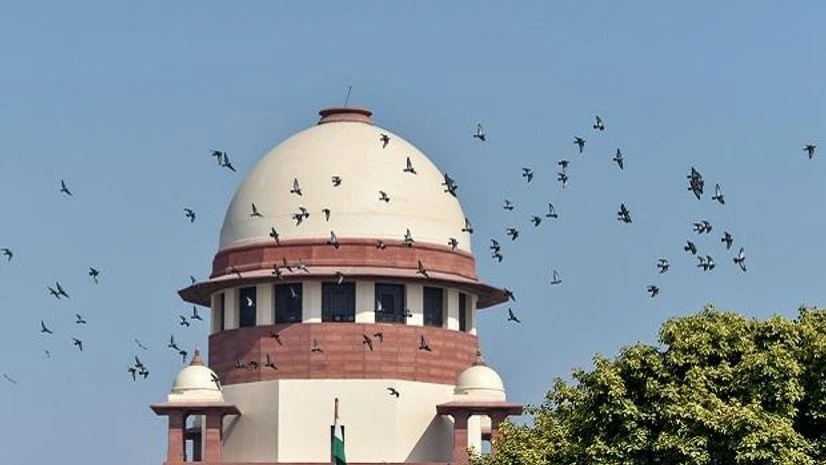The medical profession and education have become a business and now the regulation of medical education has also gone that way which is the nation's tragedy, an anguished Supreme Court said on Tuesday, giving one chance to the Centre to put its house in order and take a call on reversing the changes made to the NEET Super Speciality Examination 2021 syllabus.
The apex court was not satisfied with the justification given by the Centre, National Board of Examination (NBE) and National Medical Commission (NMC) on making the last minute changes after the notification for examination was issued in July.
This is how botched up our education system has become, it said.
A bench of Justices D Y Chandrachud, Vikram Nath and B V Nagarathna in an over two hour hearing gave time to the Centre, NBE and NMC to come up with a solution by Wednesday morning and said it will continue hearing the matter to avoid any prejudice to the young doctors.
This matter is part heard and you can still put your house in order, we will give you time until tomorrow. We will not adjourn the part heard matter now as this will only cause prejudice to the students but we hope better sense prevails. If there is a sense of obduracy, then we are armed with law and they are long enough to reach out to the obduracy. We are giving you one opportunity to reform, the bench said.
The top court was hearing a batch of pleas of 41 Post Graduate doctors and others who have challenged the last minute changes made to the syllabus after the notification for examination was issued on July 23 for the test to be held on November 13 and 14.
More From This Section
Additional Solicitor General (ASG) Aishwarya Bhati, appearing for the Centre, said the court should not get the impression that the last minute change in syllabus was done to fill vacant seats in private colleges and they will try to persuade the court to dispel this notion.
We are getting a strong impression that the medical profession has become a business, medical education has become a business and the regulation of medical education has also become a business. That's the tragedy of the nation, the bench said.
The authorities should show some concern for the students, as these are the students who do not start preparation for these course two or three months in advance but right from the time they join a Postgraduate course, they aspire for a super speciality, which requires years of commitment, it said.
The government has to balance out the investment made by the private sector in these medical colleges but it should equally think in the interest of the medical profession and the interest of students, the top court said.
The interest of students must weigh far higher because they are the people who are going to be a torch bearer of providing medical care and it seems perhaps we have forgotten them in the whole process, it said.
The top court said that prior to 2018, 100 per cent questions came from the feeder courses; from 2018 to 2020 there was major modification under which 60 per cent marks were from super specialisation and 40 per cent from the feeder super specialisation courses.
Now what is sought to be done is one hundred per cent questions will be from primary feeder speciality which is general medicines. It is completely overlooking the facts that you are fundamentally changing the examination pattern and you are doing it for an examination announced to be held in November, 2021, it said.
The bench added that NBE and NMC are not doing any favour in asking the court to push back the examination by another two months.
It told Bhati, It does not matter as these doctors will join the Super Speciality courses two months later, so long the seats are filled up it does not matter. This shows us the length to which your clients are willing to go to ensure that seats are filled up. Nothing should go vacant.
Bhati said that seats going vacant is not the only consideration that has weighed on experts but it is the comparative opportunity and comparative ease which will be in larger public interest of the students that has weighed with the experts.
The bench said, So what really happened is this for all specialisation of super speciality, starting from critical care medicines, cardiology, clinical haematology and other courses the specialisation is only going to be and the examination will be on general medicines.
"The idea is that general medicine has the largest pool, the largest group in PG, so tap and fill up the vacant seats. That seems to be the logic behind this, nothing more and nothing less.
The top court said, You may have a rationale; we are not saying you may not have a rationale. The question is that all changes, which you have brought has caused serious prejudice to the students. Problem is that you didn't plan for the future. You did not have a vision and all that you do is that just because you have a certain degree of authority you will exercise it in whatever time you want.
The bench asked Bhati and senior advocate Maninder Singh, appearing for NBE, what was the great hurry to do it for this year as heavens would not have fallen except for the fact that some 500 seats would have remained vacant in some private medical colleges.
On September 27, the top court said, Don't treat young doctors as football in the game of power, and warned the Centre that it may pass strictures if it is not satisfied with justification for last minute changes to the syllabus.
(Only the headline and picture of this report may have been reworked by the Business Standard staff; the rest of the content is auto-generated from a syndicated feed.)

)
